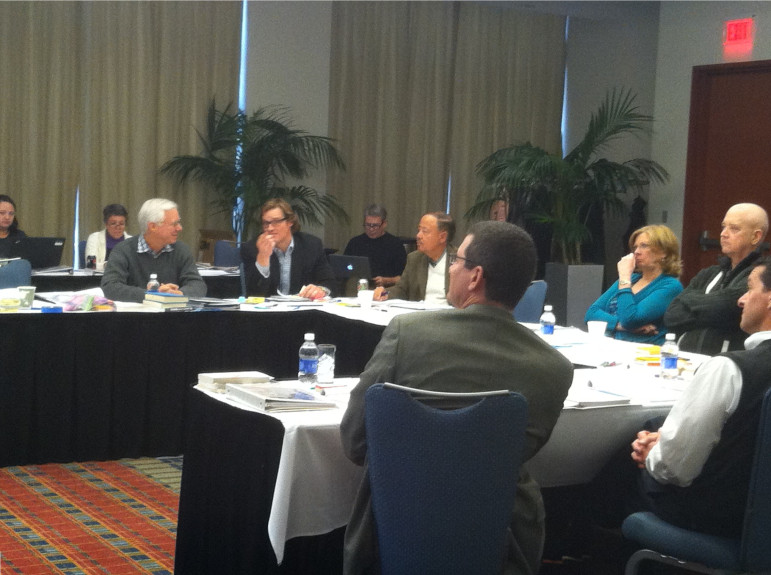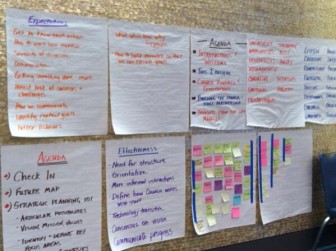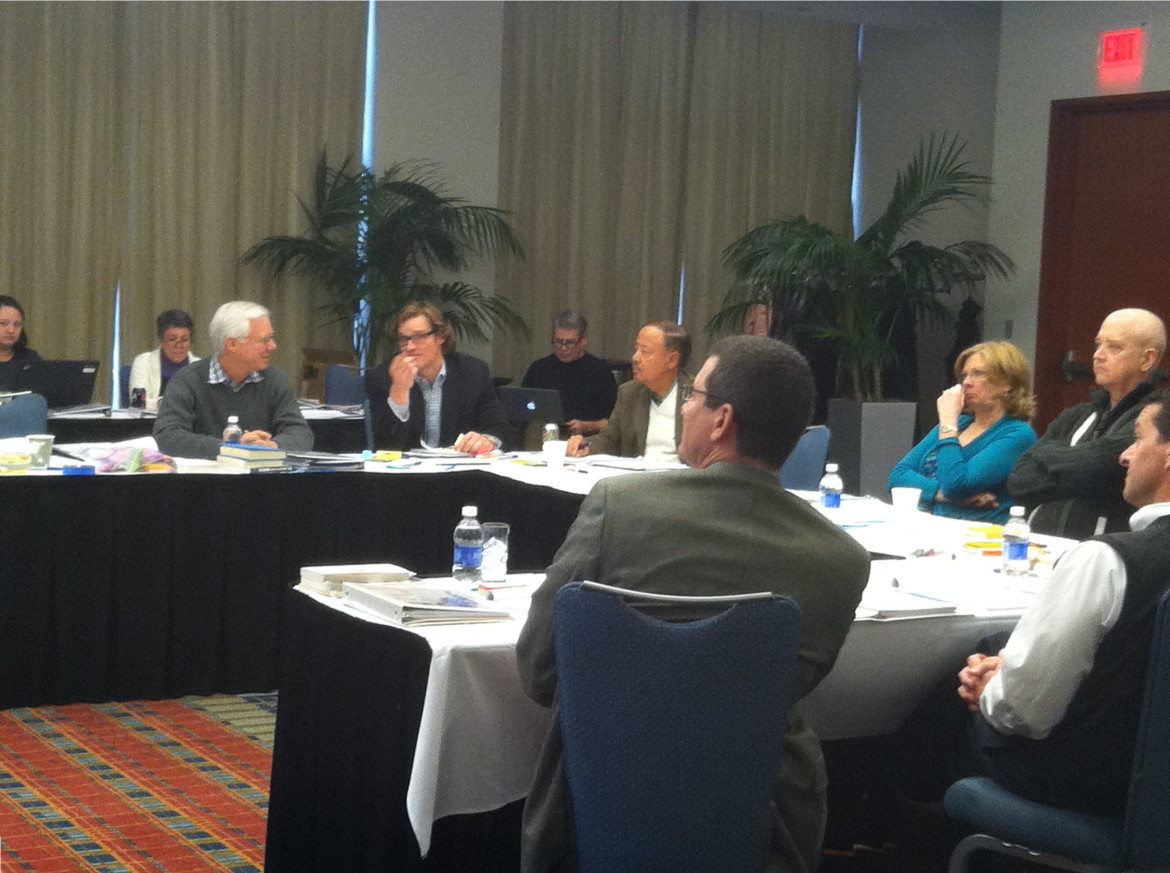Communication was the overriding theme Thursday, the first of a two-day Raleigh City Council retreat.
The retreat was originally scheduled to occur in Wilmington, but Councilors moved it to the Raleigh Convention Center after state officials advised against driving to the Port City.
Communication came up repeatedly as a major issue among Councilors and the city manager and among themselves.

A large part of the discussion centered on the best way Council members could get information from staff. Councilors questioned whether they should bring an issue to the Council and then direct staff to follow up, or go directly to staff for research before bringing the issue forward.
Today, Councilors often bring items or questions to the table during their regular meetings and staff follows up.
Councilor Thomas Crowder said he doesn’t think it’s unreasonable to have backup information when a Councilor brings something to the table. He cited the front-yard parking ordinance, which was approved, he said, in part because he and Councilor Russ Stephenson were able to provide facts and information to backup the request for an ordinance. In this case, however, Crowder and Stephenson did the research on their own time.
The discussion raised the question of resources and how much time should staff spend on a special project before it starts to take time away from other items on their priority list.
Councilors said that a threshold must be determined, but didn’t know what that threshold should be.
City Manager Ruffin Hall said that in Charlotte, the threshold was four hours. If staff thought a Councilor-initiated project would take more than four hours, it was brought to the full Council for further direction.
Councilors have been criticized in the past for taking too much of a role in the day-to-day aspects of the city, and contacting staff or department heads directly with questions rather than directing all requests to the city manager’s office.
The city’s charter states that Councilors should go directly to the city manager with questions or issues and the manager then passes the request on to city staff.

Ariella Monti / Raleigh Public Record
Retreat notes hang on the wall during sessions.
“I’d like to have more conversation with this group to hear about what your expectations and needs are about how you get information, and how we can best get you that information without having to ask every single question to me,” Hall said. “First of all, I think that’s inefficient, and secondly, I’m not the expert on everything and that just slows everything down.”
Hall said that staff, especially those who are below department heads, are looking for additional guidance.
Councilors also expressed a desire for staff to be honest with facts and information. Mayor Nancy McFarlane said that she wants staff to tell her the truth and not what they think she wants to hear.
“Some of them feel like they would be penalized either by Council, the city manager or own bosses,” said Councilor Mary-Ann Baldwin.
McFarlane said that it’s the Council’s job to take the political heat.
“If that feeling is there, that’s something that needs to be addressed,” McFarlane said.
The Information Gap
As a way to fill the gap between the city manager’s office and the City Council, Hall suggested a weekly memo to Councilors. The memo would include updates on research requests, answers to follow up questions from Council meetings and any other pertinent information.
Hall also said his office is working on a way to track Council requests for information, something not done at this time.
Along with the typical annual review, Hall and the Council will sit down on a quarterly basis.
Hall also suggested informal work sessions where certain items could be discussed and questions could be answered before the item is brought to the table for an official vote.
Today, if Councilors want to discuss an agenda item, it must be pulled from the agenda and placed in committee.
Council Dynamics
Councilors spent a large portion of the day taking part in exercises that were meant to increase communication among themselves.
Crowder said Councilors don’t generally interact with each other outside of their scheduled meetings.
“We’re not trying to understand each other personally,” he said.
Crowder suggested Councilors have a working dinner between afternoon and evening Council meetings, which happen once a month.
